Edie Melson's Blog, page 120
July 15, 2022
Writing Characters that Matter to Our Readers
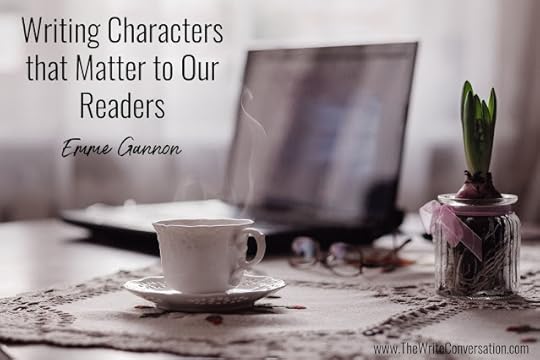
by Emme Gannon @GannonEmme
It isn’t often that we read a novel where the characters are so three-dimensional that while we inwardly scorn some of them for their impertinence, they have the power to turn back at us and eerily point their finger as if to say, I see in you what you see in me. For me, the late Rosamunde Pilcher’s 1987 split-time fiction, The Shell Seekers , had that affect.
The Shell Seekers is one of Ms. Pilcher’s most famous best sellers. It was nominated in 2003 as one of the top 100 novels in the BBC’s Big Read. The book sold more than five million copies worldwide and was adapted for the stage and twice for a television film.
Well-written stories like The Shell Seekers so capture our imagination that our days revolve around staging time to return once again to the character’s lives. At last we realize the reason for the magnetic pull. Parts of the characters that we loathe jump from the page and reveal traits hidden in us. Like a phantom ghost, they had not been seen. Until now.
The Shell Seekers is a family saga that tells the story of Penelope Keeling as she reflects on her life and her relationship with her adult children. As an older woman, she desires to be independent but when she is confronted with her own mortality by a health scare, she longs to visit the seaside village of Porthkerris in Cornwell, where she had lived with her artist father and French mother during World War II. She asks her three children to accompany her on this nostalgic journey but they all have excuses why they cannot go. When it looks as though Penelope’s quest is lost, two young friends agree to accompany her on her journey, changing the lives of them all.
Each of the characters in Penelope’s life tells their own story in their POV, allowing the reader to see the layers of their personalities and character and how their story intertwines into the tapestry of Penelope’s life.
It is there in the chapter of each character’s story that we have the opportunity to find pieces of ourselves: Nancy’s greed, Noel’s selfishness, Olivia’s tough but vulnerable nature. All those characteristics that often underlie the feeble excuses we give for being unable to step outside of ourselves and give love to another. It’s boldly there for us to see. By now, we are so connected to these alter egos of ourselves that we cannot separate from them. We must read to see if there’s hope for them and for us.
The Shell Seekers addresses the intense and often misunderstood relationship between a mother and her children and Penelope’s brave decision to let go of the burden of changing hearts that would not be changed. Instead, she decides to go back to Cornwell, a place where her parent’s love and support provided the unconditional love she now so longed for. Perhaps there she will discover how to re-connect the pieces of her broken heart.
Each time I read The Shell Seekers, I feel empowered, not so much by how the characters react to the challenges of life, but by the question that lingers when the book is closed. What would have happened if some of the characters had not given into their selfish desires. Their story is told. Ours is not. There’s hope. We were able to see a part of ourselves in the fragmented mirror of Penelope’s children, as well as the young couple who reached out to help bring Penelope’s dream to fruition. Tomorrow is a new day. We have the wonderful opportunity to choose life and love where bits of selfishness and greed once darkened our soul.
Books like The Shell Seekers, with characters that clash against the main character’s driving desire to love and be loved, are stories that touch all of us who allow ourselves to be absorbed in a story world. The power of story changes lives. That is our challenge as writers.
TWEETABLEWriting Characters that Matter to Our Readers, insight from @GannonEmme on @EdieMelson (Click to Tweet)
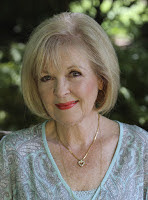 Emme Gannon is a wife, mother, and grandmother who loves to write stories that stir the heart. Her award-winning writing has appeared in Focus on the Family magazine, several anthologies, and numerous newsletters. She just completed her first novel.
Emme Gannon is a wife, mother, and grandmother who loves to write stories that stir the heart. Her award-winning writing has appeared in Focus on the Family magazine, several anthologies, and numerous newsletters. She just completed her first novel.A Fun Image to Share on Pinterest!
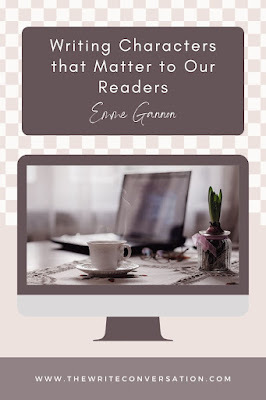
Published on July 15, 2022 22:00
July 14, 2022
Dos and Don'ts Every Writer Needs to Know
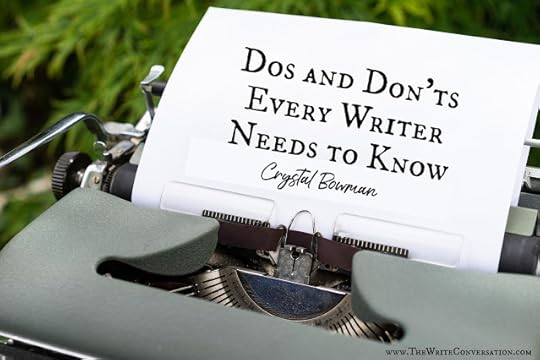
by Crystal Bowman
Through the course of my writing years, I have kept a list of helpful tips I’ve gleaned from other writers, editors, and mentors. Though some of these tips are pretty basic, they are good reminders and I read through the list every now and then just to brush up. No matter where we are on our writing journey, it’s always good to review the dos and don’ts.
Helpful Tips for Writers1. Avoid lengthy prologues, forwards, and introductions: Readers are eager to get into the book. If theses features are too long, readers (like me) will skip them.
2. Less is more: Say as much as you can with as few words as possible. Use strong verbs instead of adverbs. Rather than: She walked slowly and quietly past the baby’s room.Use: She tiptoed past the baby’s room.
3. Show don’t tell: Don’t tell me Sarah was mad, show me. Rather than: Sarah was mad because she thought that was unfair.Use: Sarah stomped her foot. “That’s not fair,” she said.
4. Punctuation: Avoid the overuse of exclamation points and use only one punctuation at a time!?! (One of my pet peeves!)
5. Don’t go into great detail describing characters: In the picture book, Where the Wild Things Are, Maurice Sendak begins the story this way: The night Max wore his wolf suit and made mischief of one kind and another, his mother called him “Wild Thing!” and Max said, “I’ll eat you up!” so he was sent to bed without eating anything. That tells us what we need to know about Max without a lengthy introduction to his character.
6. Keep dialogue attribution simple: Also know as tag lines, dialogue attribution lets the reader know who’s speaking. It’s not the place for descriptive verbs or creative adverbs. The emotion and action need to be communicated in the dialogue, not the tag line.
Rather than: “It’s time to leave,” hollered Judy angrily. Use: “I’ll give you one more minute, then I’m leaving,” said Judy.
Note: When there is ongoing dialogue between two characters and it’s clear who is speaking, the tag line can be dropped.
7. You cannot laugh or sigh words: Rather than: “My shoes are on the wrong feet,” laughed Jonny.Use: Jonny laughed. “My shoes are on the wrong feet,” he said.Rather than: “I’m getting tired of this,” sighed Sarah. Use: Sarah let out a sigh. “I’m getting tired of this.” (you can skip the tag line)
8. Always use specific words over generic words: The more specific your nouns and verbs, the more your readers can visualize the text. For example: On the fifth day, God said, “Let the waters be filled with living things.” Sharks and whales and jelly fish were soon swimming in the seas. Then God said, “Let the birds fly high in the air above the earth.” And just like that, eagles were soaring through the sky and robins were building nests in maple trees.
9. Have your work edited before you submit it to a publisher: When an editor at Zondervan was interested in my children’s stories many decades ago, he passed me off to his assistant editor to help improve my writing. Those days are gone. Hire an editor or writing coach to review, edit, and proofread your story. You best friend, spouse, or English teacher don’t qualify unless they are published authors or professional editors.
The publishing industry is constantly changing and so are rules for writing. Stay current on writing trends and invest in a good grammar book or find some online sites you trust. Writing is not for the faint of heart. If it were easy, everyone would do it!
TWEETABLEDos and Don'ts Every Writer Needs to Know from Crystal Bowman on @EdieMelson (Click to Tweet)
 Crystal Bowman is an award-winning, bestselling author of more than 100 books for children and four nonfiction books for women. She also writes lyrics for children’s piano music and is a monthly contributor to Clubhouse Jr. Magazine. She loves going to schools to teach kids about poetry. She also speaks at MOPS (Mothers of Preschoolers) groups and teaches workshops at writers’ conferences. When she is not writing or speaking, she enjoys going for walks, working out at the gym, and eating ice cream. She and her husband live in Michigan and have seven huggable grandkids.
Crystal Bowman is an award-winning, bestselling author of more than 100 books for children and four nonfiction books for women. She also writes lyrics for children’s piano music and is a monthly contributor to Clubhouse Jr. Magazine. She loves going to schools to teach kids about poetry. She also speaks at MOPS (Mothers of Preschoolers) groups and teaches workshops at writers’ conferences. When she is not writing or speaking, she enjoys going for walks, working out at the gym, and eating ice cream. She and her husband live in Michigan and have seven huggable grandkids. WWW.CRYSTALBOWMAN.COMWWW.FACEBOOK.COM/CRYSTAL.BOWMANWWW.FACEBOOK.COM/CRYSTALJBOWMANWWW.INSTAGRAM.COM/CRYSTALBOWMANAUTHOR
A Fun Pinterest Image to Share!

Published on July 14, 2022 22:00
July 13, 2022
Using the Calendar to Find Writing Ideas, Part 1, 4 Seasons of Writing Success
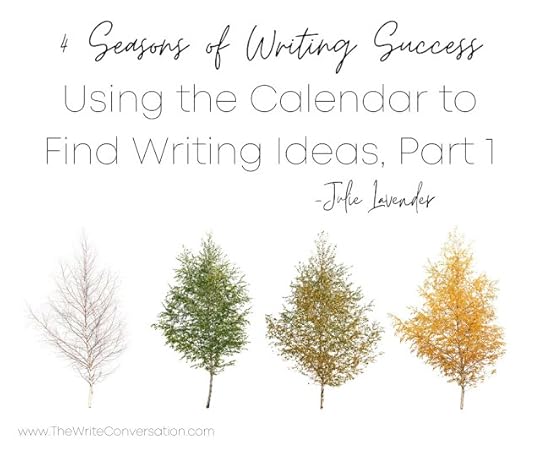
by Julie Lavender @JLavenderWrites
To everything there is a season, a time for every purpose under heaven. Ecclesiastes 3:1 NKJV
If you’re looking for something new to write about, look no further than the calendar. Holiday and seasonal writing never runs out of style. Online magazine editors, newspaper editors, bloggers, and websites need fresh content consistently, and celebratory posts can engage and inspire readers with fun and festivity.
July IdeasA quick peek this month gives you much to write about. For example, July is National Blueberries Month. Why not write about childhood memories of picking blueberries and then share Grandma’s favorite blueberry muffin recipe?
July is also National Ice Cream Month. Consider a newspaper article that spotlights the local ice cream shops. Share flavors of the month, specialty milk shake combos, and the origin of each ice cream locale. Is it a third generation business? Have famous people dropped by for a taste?
Celebrate National Tom Sawyer Days with an informative blogpost about Mark Twain, Tom, Huck, and Becky.
In honor of National Scrabble Week, post a blog about unusual ways to play scrabble. You could even make up a new version of scrabble and share those guidelines, too!
For more silly holidays to spark the creative juices, check out some of these websites:
Nationaltoday.comHolidays-and-Observances.comDaysoftheyear.comHolidayInsights.com
Writing Seasonal StoriesWhen you’ve exhausted the silly holiday list, think about seasonal stories, like a newspaper article that shares the Top 10 Spots for Summer Fun Within a 60-Mile Radius or a blogpost that boasts 20 Ways for Free Family Fun this Summer.
Offer to write a guest post on a homeschooling website about How We Homeschool During the Summer or Best Curriculum for a New School Year. Share a guest post on a friend’s website with the title Favorite Summer Reads or Best Books to Read at the Beach.
Write devotions about gardening, searching for shark’s teeth on the beach, making jam with Grandma, fishing with Grandpa, and learning how to swim. Submit a story to an anthology callout about summer camp, chaperoning a youth mission trip, or that time Uncle Ernest spit out his dentures instead of the watermelon seed.
Let’s face it … summer writing topics are as endless as the ocean waves. Get busy writing from the calendar this season and celebrate the beauty and warmth of summer. Hurry before summer slips away, because in the words of Shakespeare, “Summer’s lease hath all too short a date.”
What about you? What summertime-fun articles have you written thus far? What ideas do you have for other summer stories or devotions or blogposts?
TWEETABLEUsing the Calendar to Find Writing Ideas, Part 1 tips from @JLavenderWrites on @EdieMelson (Click to Tweet)
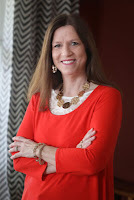 Julie Lavender loves silly holidays and any excuse to celebrate. She especially loves celebrating with fellow authors when new books and projects launch. She’s the author of Children’s Bible Stories for Bedtime (Zeitgeist/Penguin Random House) and 365 Ways to Love Your Child: Turning Little Moments into Lasting Memories (Revell). She’s also a contributor to The Seven, a podcast sharing life events with six other writer friends to ignite and encourage listeners on their faith journey.
Julie Lavender loves silly holidays and any excuse to celebrate. She especially loves celebrating with fellow authors when new books and projects launch. She’s the author of Children’s Bible Stories for Bedtime (Zeitgeist/Penguin Random House) and 365 Ways to Love Your Child: Turning Little Moments into Lasting Memories (Revell). She’s also a contributor to The Seven, a podcast sharing life events with six other writer friends to ignite and encourage listeners on their faith journey.A Fun Image to Share on Pinterest!
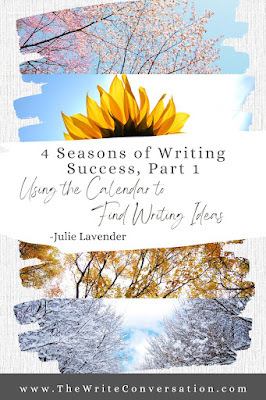
Published on July 13, 2022 22:00
July 12, 2022
Six Things a New Writer Needs to Do

by Linda Gilden @LindaGilden
Recently I was at a writers conference. Usually when I meet with folks their questions are all over the board. However, this time it seemed as if one question quickly claimed the #1 spot as to what everyone wanted to know.
Over and over I heard, “I am really new at this. Where should a beginning writer start?”
I assured them they had taken a great first step by attending the conference and we discussed what they had learned and what other classes they should take. I also made a few suggestions for other writers who might not know where to start following their dream of being a writer.
6 Things a New Writer Needs to Do1. Write. Even if you are not sure what you want to write, write something. Lynette Eason always says, “You can’t always fix a blank page but if you don’t have any words on the page, you can’t really do anything with that!” So true. Write something—a blog, in your journal, a letter to a friend or your mom. As you begin to write you will get some new ideas as to what direction to take your writing.2. Come up with a title you love. Titles are not always the first thing you come up with. But sometimes you have a thought or hear a phrase that is just too perfect of a title to let it slide by. Put your title at the top of the page and see where it takes you.3. Write what you know. That’s always a good piece of writing advice. Where is your greatest area of expertise? What are you passionate about? An essay about the things you love should come easily. Or a novel where the main character is a chemical engineer (just like you!) and you know exactly what her daily schedule looks like and what she does. The opposite of this process is to write about something you are not familiar with. This leaves you with the assignment of tremendous research but perhaps you are the research type.4. Start with a story, but not necessarily the beginning of the book. You probably have many stories ruminating in your brain. Write one down. Write it the best you can so you are ready to share it with others. It will then be easily incorporated in your story. If you don’t use it now, at least you have a well-written anecdote or full story you can use later.5. Write a synopsis or a detailed outline. If you are writing nonfiction, you need a good outline. Even if you don’t like to outline, you will find that it worth your time to make an outline. It will serve you well. Once you are ready to write your manuscript you will have a road map and can just follow it to complete the project. For my first nonfiction book, I had a 35-page outline. If you are writing a novel, you will find writing a synopsis will help you flesh out your story. While writing you will see where you need a way to get from point 1 to point 2 and help you close those gaps before you start writing. Most publishers require a synopsis be sent when you pitch your novel so you will have that done when it comes time to pitch your work.6. From this day on, think of yourself as a “real” writer. When someone you haven’t seen n a long time asks you what you are doing right now, proudly and confidently say to them, “I am a writer.”
These are several helps to get you started. Do you have other questions? Ask them in the comments and we’ll be glad to answer them. Writing is a great occupation but it takes lot of work. Let us help you get started.
TWEETABLESix Things a New Writer Needs to Do, tips from @LindaGilden on @EdieMelsn (Click to Tweet)
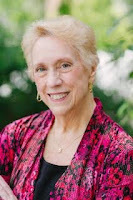 Linda Gilden has coauthored 11 books with 5 different coauthors and has #12 and #13 coming out in 2022, adding a new co-author to the list. She loves every one of her coauthors and enjoys collaborating on interesting projects with them. She also has written many books on her own and realizes what a treasure and blessing a good co-author is.
Linda Gilden has coauthored 11 books with 5 different coauthors and has #12 and #13 coming out in 2022, adding a new co-author to the list. She loves every one of her coauthors and enjoys collaborating on interesting projects with them. She also has written many books on her own and realizes what a treasure and blessing a good co-author is.A Fun Image to Share on Pinterest!

Published on July 12, 2022 22:00
July 11, 2022
Writers Advice: How to Tell the Difference between Promotion & Self-Promotion
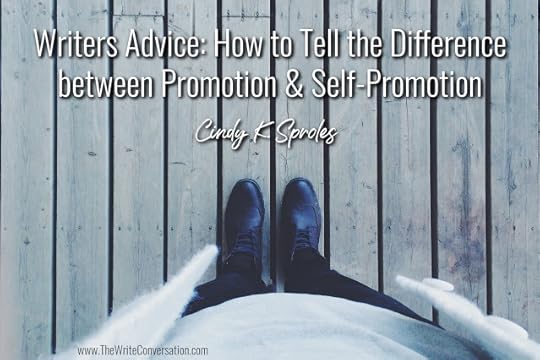
by Cindy K. Sproles @CindyDevoted
We hear it all the time. “I can’t do social media. It’s uncomfortable for me to promote myself.” OR, “I can’t send out a newsletter or go on a TV show. It’s self-promotion.”
I have two responses: 1) Seriously, do you think it’s selfish? 2) What good is a book on the shelf if you feel you can’t promote it?Those are my gut reactions, but there are things we need to talk about concerning this. I am no social media guru. But I do spend some time on Facebook and Instagram. I think it’s crucial that we, first and foremost, define self-promotion. There are some who, despite my efforts, will refuse to promote a book. I simply ask that you hear me out before you say nope.
There is a vast difference between promoting a book and self-promotion. The difference lies in how you do the promotion and with what heart you present. I hear some of you saying, tomato to-ma-to, but it’s true. Promoting a book or service, done professionally and kindly, works beautifully and without repercussions. It’s not waving a flag every post, screaming, buy my book, buy my book. You don’t become that annoying kid who keeps on and on. Learning to choose your method of promotion is important, and it’s not hard when you keep these tips in mind.
Insight on Promotion vs. Self-Promotion
Follow the ten-to-one rule: On social media, be kind. Promote others along with your work. For every one post you place on your writing, share or post ten things about others. When you do this, social media becomes social again. You’re developing relationships with others who will return the favor. Promoting your books is not about how many times you can slam social media with your work. It’s how much you can do for others, first and foremost. The rest will follow.
Develop a launch team: When sharing your work is difficult for you, pull together a team. There are folks who love to share your work (refer to the above). Their mere personality wires them to find joy in sharing things they love. Find those folks, invite them to be a team member, and do something special for them—i.e., a copy of the book via pdf so they can read in advance BEFORE the book releases. This is such a perk for readers who love your work. They get to read your work before everyone else and are super excited to share that news and your story with others. When the book is printed, send them a copy. It’s a wonderful reward, and they’ll write reviews which are so necessary. Your team will post, send out notes, tweet, and do reviews for the joy of reading your work pre-publication. Publishers will provide watermarked PDFs for you to share with a launch team.
Stop being silly: Ouch! I know that sounds harsh, but here’s the truth. We seem to have no problem promoting photos of our pets licking our cheeks or our babies or grands, but we can’t share photos of our newest release? This puzzles me. The comparison is that folks enjoy a few photos of the dog or baby, but photo overload happens quickly. As the promoter, you must learn to spread these things out strategically. Again, refer to that ten-to-one rule. It’s a great rule. Share your work via book cover rather than shouting, “Look at my book!” Tone it down and say, “Coming soon,” or “Introducing.” These words are crucial to separating professional from irritating. Again, it’s all in how you present things. When you think professionally on every level, you won’t go wrong. How does Hollywood promote movies? They use a trailer. Good idea. Keep them under 30 seconds. In other words, don’t tell the entire story—just give them the hook that makes them want to read your book. You can download free software that helps you make trailers, but these days, there’s usually something on your computer to help you create this. Step up to those radio and television spots. Instead of telling all about you, let readers know what is coming inside this book. It’s all about the item, not the author; this is the mindset you must develop.
Find something unique or useful for your readers: For example, I posted Mountain Trivia weekly as my Appalachian Historical novels began to emerge. These are little tidbits about living in the mountains, the culture, and the oddities of mountain life. Plus, they are usually multiple-choice, so folks get to guess. It’s fun and informational, and it draws folks in. In between times, I replied to everyone who played along. When I visit their pages, I see things that help me build a relationship with them. I can share those things or respond to them. Before you know it, these folks are sharing my information. When I drop in my book, they’re thrilled to see it because they’ve developed a relationship with me.
The truth is, too much of anything crosses the line from promotion to self-promotion. When we overdo, folks grow tired of the flag-waving, but when we take the time to be intentional about what we share and its frequency, others enjoy the information.
Let’s look at a comparison:I wrote a book. It goes on sale this week. You have to read this book. Go to Amazon and buy the book.News flash—Newest Appalachian Historical Novel releasing June 2023. This is Where It Ends. The question is, how long do you keep a promise, even if it’s detrimental?Do you see the difference?
When you decide to become a writer and to have a book on the shelves, you accept the responsibility of promoting your book. This is part of the job. However, you can be very choosy about how you perform the promotion. I’m about to repeat myself here—but it’s important. Always promote your book professionally and in a kind matter. Be courteous about what and how you share and the frequency. Recruit others to help you. The load then focuses on the work, not on you.
The success of your work will depend on how intentional and professional you are about promoting it. Change your thought process, and remember, it’s about the work. You’ll soon have a following of folks who love to invite others to read your work, and your thought process changes for the good. Now—promote that book.
TWEETABLEWriters Advice: How to Tell the Difference between Promotion & Self-Promotion, tips from @CindyDevoted on @EdieMelson (Click to Tweet)
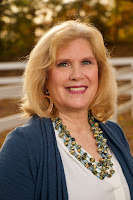 Cindy K. Sproles is an author, speaker, and conference teacher. She is the cofounder of Christian Devotions Ministries and the executive editor for www.christiandevotions.us and www.inspireafire.com. Cindy is the lead managing editor for SonRise Devotionals and also Straight Street Books, both imprints of LPC/Iron Stream Media Publications. She is a mentor with Write Right and the director of the Asheville Christian Writers Conference held each February at the Billy Graham Training Center, the Cove, Asheville, NC. Cindy is a best selling, award winning novelist. Visit Cindy at www.cindysproles.com.
Cindy K. Sproles is an author, speaker, and conference teacher. She is the cofounder of Christian Devotions Ministries and the executive editor for www.christiandevotions.us and www.inspireafire.com. Cindy is the lead managing editor for SonRise Devotionals and also Straight Street Books, both imprints of LPC/Iron Stream Media Publications. She is a mentor with Write Right and the director of the Asheville Christian Writers Conference held each February at the Billy Graham Training Center, the Cove, Asheville, NC. Cindy is a best selling, award winning novelist. Visit Cindy at www.cindysproles.com.Featured Image: Photo by Kyle Anderson on Unsplash
Published on July 11, 2022 22:00
July 10, 2022
Do You Share These 4 Traits with Other Holy-Spirit-Led Speakers and Writers?

by Linda Goldfarb @LindaGoldfarb
Whether you are a veteran speaker or just beginning this incredible journey of vocal proportions, rest assured everything you say becomes supernaturally charged when the Holy Spirit is engaged.
I can't count the number of times I charged to the stage with the full intent of delivering a message that touched hearts, only to discover I had isolated myself from the Holy Spirit. This isolation left me in front of eager audiences equipped with no more than a story that fell flat. As Christian writers, we are all about stories. As Christian speakers, a Spirit-less story can turn potential readers away before they've ever touched our books.
Lessons learned in God's word have proven that I can do nothing without Him. My prayer, as you consider the following truth, is that you will be encouraged to embrace and walk on stage with He who is in you more than you ever have in the past.
4 Traits of Holy-Spirit-Engaged Speakers
Spirit-led Speakers are Joyful
A joyful speaker is not free from misfortune. A joyful speaker thrives, despite adversity.
The disciples were encouraged by Jesus to enter towns prepared to share His good news and, if doors were opened to them, to stay and be glad. He also charged them to shake off the dust from their feet when met with opposition or rejection.
Consider the final takeaway as you read Acts 13:52 from the New Living Translation.
So they (the believers) shook the dust from their feet as a sign of rejection and went to the town of Iconium. And the believers were filled with joy and with the Holy Spirit. (Inserted by author)
Can you imagine getting up in front of an audience and them booing you in full force? It's happening around our country today.
yet, we stand firm in the word knowing, "And all the believers were filled with joy and with the Holy Spirit." What? Yes! They were joyful. Because the Holy Spirit filled them.
We, too, must seek the Holy Spirit before stepping in front of anyone to share our message.
Seek His will. Ask His blessing. Remain joyful.
Spirit-led Speakers are Transparent
When we speak, people listen. When the Spirit speaks through us, people change.
According to Scripture, we are to livewith wisdomopen to opportunitiesin consideration of God’s willunencumbered by distractionsfilled with the Holy Spiritwith music in our heartsgiving God thanks for everything
So be careful how you live. Don’t live like fools, but like those who are wise. Make the most of every opportunity in these evil days. Don’t act thoughtlessly, but understand what the Lord wants you to do. Don’t be drunk with wine, because that will ruin your life. Instead, be filled with the Holy Spirit, singing psalms and hymns and spiritual songs among yourselves, and making music to the Lord in your hearts. And give thanks for everything to God the Father in the name of our Lord Jesus Christ (Ephesians 5:15-20 NLT).
Father reminds me often, as a speaker, that transparency transforms.
Filled by the Holy Spirit, He frees us to speak from our hearts. Attitudes may change if we allow outside influences, fears, and doubts to bog us down. An attitude change puts our message at risk. Therefore, our audience is at risk unless we give every aspect of our talk over to the Spirit.
Scripture encourages us to be filled by the Holy Spirit by singing in community with other believers. I love how Russell and Kristi bring us to the throne of God in worship before we go about the business of the BRMCWC each year.
Spirit-led Speakers are Truthful
Words, written or spoken, have power. Spirit-filled words are supernaturally powered.
We are set apart as truth-talkers to look falsehoods in the face and declare them what they are –deceit, fraud, and the enemy of all that is good.
As Christian speakers, we must always filter our wisdom through Scripture. If we give an opinion, say so, “In my opinion … ." If we declare a truth, we must back it up with Scripture. And remember, if we give a verse, let us be sure the chapter supports it. Truth, taken out of context, can come back to strike us on the heel.
Paul, zealous for God and sensitive to his calling, received discernment from the Holy Spirit. The Spirit revealed the sorcerer's deceit. Paul spoke, what he received, not out of his knowledge, but the truth from God.
Saul, also known as Paul, was filled with the Holy Spirit, and he looked the sorcerer in the eye. Then he said, “You son of the devil, full of every sort of deceit and fraud, and enemy of all that is good! Will you never stop perverting the true ways of the Lord? Acts 13:9:10 NLT
We have the Holy Scriptures and our connection to the Holy Spirit to provide us with discernment. Let us be ever sensitive to His leading.
Spirit-led Speakers are Bold
Speaking with boldness is not berating, demeaning, or destructive. Boldness is confident gentleness.
Annas, Caiaphas, and the elders of religious law threatened the lives of Peter and John if they continued to spread the Good News of Christ. Peter, John, and the other believers prayed for courage.
After this prayer, the meeting place shook, and they were all filled with the Holy Spirit. Then they preached the word of God with boldness (Acts 4:31 NLT).
Imagine again the courage it took to say, "No matter what, we will stand."
Supernatural courage is what it took, and the Holy Spirit provided it in boatloads.
We, too, will experience supernaturally charged boldness as we breathe in the Holy Spirit through His word, His guidance, and our community of fellow believers.
Before leaving your chair at an event, close your eyes, invite the Holy Spirit to fill you with overflowing, and watch His joy fill the place with you as His vessel.
Until next time, remember when you speak what you write with Spirit-led confidence, God will open doors no man can close. Praise Him --Linda
TWEETABLEDo You Share These 4 Traits with Other Holy-Spirit-Led Speakers and Writers? Insight from @LindaGoldfarb on @EdieMelson (Click to Tweet)
 Besides hosting the award-winning, YOUR BEST WRITING LIFE PODCAST, Linda Goldfarb is a multi-published award-winning author, audiobook narrator, international speaker, board-certified Christian life coach, and the co-owner, co-founder of the LINKED® Personality System, and co-author of the LINKED® Quick Guide to Personality series.
Besides hosting the award-winning, YOUR BEST WRITING LIFE PODCAST, Linda Goldfarb is a multi-published award-winning author, audiobook narrator, international speaker, board-certified Christian life coach, and the co-owner, co-founder of the LINKED® Personality System, and co-author of the LINKED® Quick Guide to Personality series.Linda and her hubby, Sam are empty nesters leading full lives. With four adult children and grand-baby #15 on the way—life is a new adventure every day. She loves sipping frothed coffee with friends, traveling the countryside with Sam, and sharing transparent truth to help others take their next best step—personally and professionally.
Connect with Linda Website - HTTPS://WWW.LINDAGOLDFARB.COMFacebook - HTTPS://WWW.FACEBOOK.COM/LINDA.GOLDFARBPinterest - HTTPS://WWW.PINTEREST.COM/GOLDNTEXAS/LinkedIn - HTTP://WWW.LINKEDIN.COM/IN/LINDAGOLDFARBInstagram - HTTPS://WWW.INSTAGRAM.COM/TEXASGOLDFARB/Twitter - HTTPS://TWITTER.COM/LINDAGOLDFARBYouTube - HTTP://WWW.YOUTUBE.COM/C/LINDAGOLDFARBLIFECOACH
Featured Image: Photo by Product School on Unsplash
Published on July 10, 2022 22:00
July 9, 2022
Learning to be the You God Created
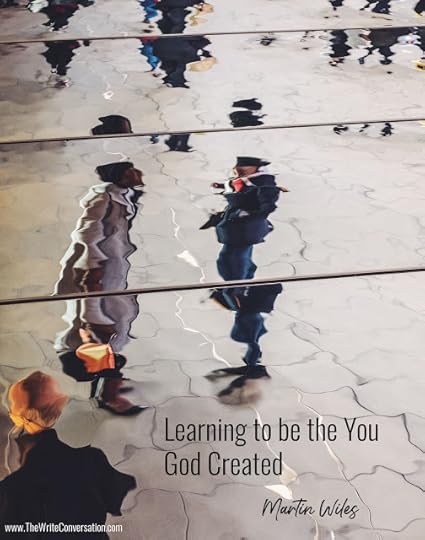
by Martin Wiles @LinesFromGod
Forrest Gump asked, “Aren’t I going to be me?”
Forrest Gump may hold the “most favorite movie” title in my heart. Perhaps because watching it resembles reading historical fiction, my favorite genre of literature.
Forrest loved Jenny, his only friend when he was a young boy. But Jenny came from an abusive home where her drunken father took many liberties with her. She once prayed that God would make her a bird so she could fly far away. Her early experiences hounded her into college and beyond. Not until she became a young woman and mothered a child—Forrest’s child—did she realize what Forrest had tried to get her to admit for a long time: she loved him. Unfortunately, her loose living resulted in an incurable disease that took her life prematurely.
But before these later troubles, Jenny and Forrest sat in her dorm room one day, discussing life. Jenny shared her aspirations to be a folk singer like Joan Baez. When she asked Forrest if he ever thought about what he wanted to be, he asked the comical yet thought-provoking question.
Can we be anyone other than who we are? King Saul may have thought so. He held the king title of Israel, but all he heard from the women was “Saul has killed his thousands, and David his ten thousands” (1 Samuel 18:7 NLT). As a result, he flew into a rage and made several attempts on David’s life. David also had several opportunities to kill Saul, but he refused to slay the Lord’s anointed.
Have you ever wondered how it would feel to be _______________ (fill in the blank with your favorite author or actor)? To be an award-winning author. To travel across the country—or even worldwide—and speak to thousands. To have numerous books to your credit—and actually be able to pay the bills from the royalties. To have a social media platform that any agent or publisher would be glad to take advantage of.
Most of us writers must return to Forrest Gump’s question: “Aren’t I going to be me?” And the me we are probably doesn’t fall into any of the above categories. We’re not popular—at least not beyond our friends and family. Nor are we famous.
After all, if all of us were famous, none of us would be. We’d have to change the definition of famous. We’d all just be . . . well . . . ordinary. But what’s wrong with that?
Truthfully, we can’t be anyone other than who we are. If we try, we’ll soon get discouraged, give up the fight, or write devotions, articles, and novels that don’t reverberate with our voice.
Why God gives notoriety to some and not others, I can’t answer. A few are internationally recognized, while most are known only in small circles. Some influence millions while others touch only hundreds—perhaps just someone in their family or church.
Rather than try to be what or who we aren’t, we merely need to be who God wants us to be. We are his masterpieces, and he has created us with purpose. His plans for us vary, but the most important thing we can do in our writing—and anything else—is learn the truth of Forrest’s statement. Forrest couldn’t be Jenny nor his best friend, Bubba. Nor could Jenny be Forrest. And King Saul couldn’t be David. And I can’t be Max Lucado, Charles Stanley, Stephen King, Margaret Mitchell, John Steinbeck, etc. Nor can you. The best thing you can do is just be you. After all, you are the only you there is. Or as Dr. Seuss said, “Today you are You, that is truer than true. There is no one alive who is Youer than You.”
Tell us about a time you struggled to be you.
TWEETABLELearning to be the You God Created, insight from Martin Wiles, @LinesFromGod on @EdieMelson (Click to Tweet)
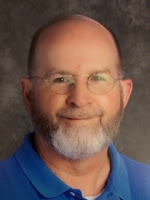 Martin Wiles is the founder of Love Lines from God (www.lovelinesfromgod.com) and serves as Managing Editor for Christian Devotions, Senior Editor for Inspire a Fire, and Proof Editor for Courier Publishing. He has authored six books and has been published in numerous publications. His most recent book, DON'T JUST LIVE...REALLY LIVE, debuted in October of 2021. He is a freelance editor, English teacher, author, and pastor.
Martin Wiles is the founder of Love Lines from God (www.lovelinesfromgod.com) and serves as Managing Editor for Christian Devotions, Senior Editor for Inspire a Fire, and Proof Editor for Courier Publishing. He has authored six books and has been published in numerous publications. His most recent book, DON'T JUST LIVE...REALLY LIVE, debuted in October of 2021. He is a freelance editor, English teacher, author, and pastor.Featured Image: Photo by James Kemp on Unsplash
Published on July 09, 2022 22:00
July 8, 2022
Straight Talk: Being a Writer is Stressful
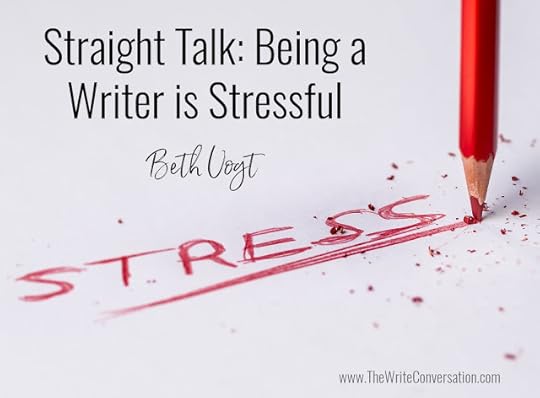
by Beth K. Vogt @BethVogt
Does writing ever stress you out?
I typed that question, sat back, and tried to imagine people’s various responses.
Does writing ever stress me out?
Are you kidding, Beth? Do you know how difficult it is to find time to write when I work a fulltime job?
I’m staring down a deadline that’s three weeks away—and I still don’t know how this book ends!
You can’t begin to imagine the daily struggles I face with a chronic illness. My dreams of publication seem further and further away. Some days I just want to give up.
Every writer I know, no matter how much they love writing, gets stressed out by writing.
The mental anxiety is unavoidable.
Why?
The easy answer: Life.
Here’s another answer: Competing values.
Does that term sound familiar? Competing values is a fiction technique used to develop tension in novels. Example: We determine our heroine values both her small-town roots and the love of a man who travels the world. Then we force her to choose between the two. Doing so causes tension because no one likes to choose between two things that are equally important to them.
We have personal values in real life too—what we judge is important in our life. Values can include:CourageKindnessHonorPerseveranceSuccessWealthHealth
Let’s circle back to writing being stressful, shall we?
As creatives who express our giftedness through words, it’s obvious we value writing. Just go ahead and put “writing” on a mental list of personal values. Here’s another question for you:
What else would you add to your list of personal values? What else is important to you? Family? Your “real” job? Church? Volunteering? Caregiving? Exercise?
When we’re forced to choose between writing and (fill in the blank with one of those other things you judge is important in your life), that’s when stress ramps up. The reason we have to choose? We only have so much time in our day, money in the bank, mental and physical energy to expend.
Do I have an answer to resolve this tension?
No.
This is more of a reality check kind of blog post.
We all value more than one thing. We are creatives who reflect God to the world through our words. We also value other things (and people) and use the gifts God has given us in those facets of our life too.
Sometimes we juggle writing and everything else.
That’s stressful.
Sometimes we temporarily pause some things—like meeting friends for coffee or exercising like we need too—while we write. Or we pause writing while we do the other stuff—like facing a health crisis or adjusting to being a newlywed.
Also stressful.
We will always face choices between competing values, day in and day out. Let’s also remember to ask God to guide us as we make our choices and to weave His lavish grace through it all.
TWEETABLEStraight Talk: Being a Writer is Stressful, insight & encouragement from author @BethVogt on @edieMelson (Click to Tweet)
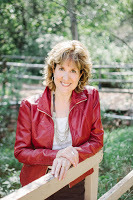 Beth K. Vogt believes God’s best often waits behind the doors marked “Never.” Having authored nine contemporary romance novels and novellas, The Best We’ve Been, the final book in Beth’s Thatcher Sisters Series with Tyndale House Publishers, releasers May 2020. Other books in the women’s fiction series include Things I Never Told You, which won the 2019 AWSA Award for Contemporary Novel of the Year, and Moments We Forget. Beth is a 2016 Christy Award winner, a 2016 ACFW Carol Award winner, and a 2015 RITA® finalist. An established magazine writer and former editor of the leadership magazine for MOPS International, Beth blogs for Learn How to Write a Novel and The Write Conversation and also enjoys speaking to writers group and mentoring other writers. Visit Beth at bethvogt.com.
Beth K. Vogt believes God’s best often waits behind the doors marked “Never.” Having authored nine contemporary romance novels and novellas, The Best We’ve Been, the final book in Beth’s Thatcher Sisters Series with Tyndale House Publishers, releasers May 2020. Other books in the women’s fiction series include Things I Never Told You, which won the 2019 AWSA Award for Contemporary Novel of the Year, and Moments We Forget. Beth is a 2016 Christy Award winner, a 2016 ACFW Carol Award winner, and a 2015 RITA® finalist. An established magazine writer and former editor of the leadership magazine for MOPS International, Beth blogs for Learn How to Write a Novel and The Write Conversation and also enjoys speaking to writers group and mentoring other writers. Visit Beth at bethvogt.com.
Published on July 08, 2022 22:00
July 7, 2022
God's Strength Keeps Writers Strong
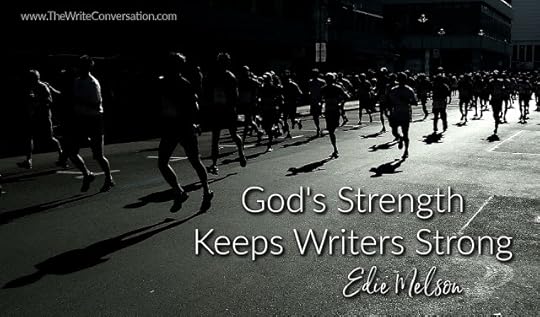
by Edie Melson @EdieMelson
Have you ever witnessed a marathon? Participated in one?
While I have never run a marathon, two of my sons were long distance runners in high school.
Recently, I was reading Psalm 119 and a verse captured my attention. I shall run the way of Your commandments, For You will enlarge my heart. Psalm 119:32 (NASB). This verse reminded me of watching our sons run those long races. And it brought to mind the similarities of marathons and the life of a writer. Truly it's God's strength that keeps writers strong as we each run our own writing race.
Take a walk down memory lane with me while I revisit one race in particular—and as I share some insights I've gleaned from God's Word.
The crowd began to roar as the runners came into view, arms pumping and feet pounding. All of their training and discipline came into play during that last mile. Their faces reflected the struggle to continue—to finish the race. If you’ve ever witnessed a marathon, you know what I’m talking about. These athletes train for months to be able to finish that grueling 26 mile race.
So how do they manage this amazing physical feat? They’re not born with the ability to run these distances, no one is. It takes training, months and years of discipline and sacrifice—and a larger heart. That’s right, doctors have found that long distance runners have significantly larger hearts than the average person. This is a result of their intensive training. They need this larger muscle to pump additional oxygen through their blood to compete at this level.
As believers—and as believers who write—we also have a race to run. God has a purpose for each of us. At times that purpose is a grueling marathon of faithfulness and work. But God also provides the strength, the larger heart, to accomplish His purpose through us. As we practice daily obedience and discipline, our capacity for the lifeblood of the Holy Spirit increases. Our hearts enable us to be used by God in His work. We too can become elite spiritual athletes, an example of what God wants for all His people.
So join me as I train for my marathon. Feel the joy that comes from a writing life lived with purpose and discipline. Accept God’s training and provision as He enlarges your heart.
A Prayer for the Writing Marathon
Dear Lord, I ask You to give us the strength and everything we need as we write for You. The life of a writer truly feels like a marathon. There are the endless hours of honing our craft as we pound away at the keyboard. These times are punctuated by brief moments of cheering as we watch something we’ve worked on see the light when our words are read by others.
Help us to stay focused on You as we continue to train and grow. Keep us away from the pitfalls of exhaustion and discouragement. Put people around us to cheer us on and remind us that Your purpose is sure and we can have faith that You are using our words to touch others.
Don’t let us take a detour, hoping for an early victory. Instead keep us steady in our faith as we follow the path You have laid out. You breathe life into our words and Your Spirit continues to give us what we need to stay the course. Amen.
TWEETABLEGod's Strength Keeps Writers Strong, insight and a prayer from author @EdieMelson (Click to Tweet)
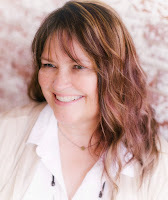 Edie Melson is a woman of faith with ink-stained fingers observing life through the lens of her camera. No matter whether she’s talking to writers, entrepreneurs, or readers, her first advice is always “Find your voice, live your story.” As an author, blogger, and speaker she’s encouraged and challenged audiences across the country and around the world. Her numerous books reflect her passion to help others develop the strength of their God-given gifts and apply them to their lives. Connect with her on her website, through Facebook, Twitter, and Instagram.
Edie Melson is a woman of faith with ink-stained fingers observing life through the lens of her camera. No matter whether she’s talking to writers, entrepreneurs, or readers, her first advice is always “Find your voice, live your story.” As an author, blogger, and speaker she’s encouraged and challenged audiences across the country and around the world. Her numerous books reflect her passion to help others develop the strength of their God-given gifts and apply them to their lives. Connect with her on her website, through Facebook, Twitter, and Instagram.
Published on July 07, 2022 22:00
July 6, 2022
A Review of a YouTube Channel for Writers
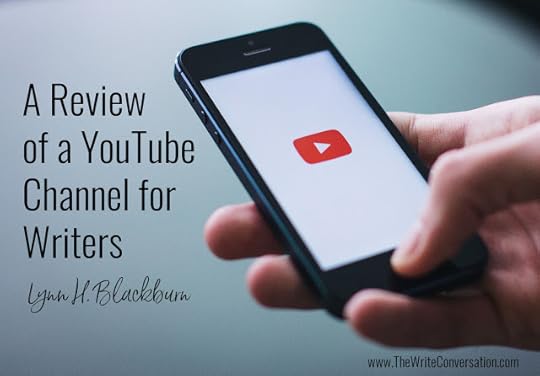
by Lynn H. Blackburn @LynnHBlackburn
When I first started writing for The Write Conversation, I typically shared reviews of various books on writing. And I still enjoy doing that. But today I want to give you a brief review of a YouTube channel.
Hey—It’s 2022! I have to keep up with the times! LOL!
I have a writer friend, Deborah Clack, to thank for pointing me to The Quitcast from Becca Syme and the Better-Faster community. I’m not sure if I would have heard of it otherwise for two reasons: It isn’t geared toward writers of faith, and it leans heavily into advice for indie authors.
Now, let’s have a brief chat about both of these.
First: I am a writer who writes about my faith and my faith is integral to the way I write and what I write. For me, writing is an act of obedience and worship. With that said, there is a lot of amazing information and wisdom out there from secular sources. It is my personal opinion that while we should use discernment, we shouldn’t be afraid to learn from authors and teachers who may or may not share our beliefs or who may choose not to be open about their faith in their professional space.
Second: I’m a traditionally published author and very happy to be one. But there are many phenomenal authors who have gone indie, either from the beginning or later in their career, and frequently they have incredible insights into topics that impact all of us—burnout, writer’s block, writing styles, and how to craft a career that you can sustain over the long haul.
Which leads us back to Becca Syme and The Quitcast.
Becca Syme is a certified Clifton Strengths Coach, an indie author, and the head of the Better-Faster community. One of her frequent taglines is that her goal is to help writers understand what to keep, what to quit, and what to question.
My first exposure to Becca was The Quitcast, her YouTube channel that is currently in its fourth season.
Because I’m a nerd, I went to the first episode and started there. But there’s no reason you couldn’t jump in anywhere that looks interesting to you. I found her episodes on energy pennies, plate size, questioning the premise, and writer’s block to be particularly informative.
Most recently, she did a series of episodes on what it’s like to be an intuitive writer. So for those of you who resonated with my post from last month, you may find those to be appealing.
If you’re an indie author, you may be interested in her episodes on marketing, and I’ve never met a writer who didn’t need advice on what to do when they get stuck, so I truly believe there’s something for everyone here.
One thing to note: Because Becca is a Gallup certified CliftonStrengths Coach, there are numerous references to how our strengths play a role in our writing life. But you don’t have to know or understand strengths to benefit from the episodes.
With that said, after listening to a bunch of episodes, I did the strengths assessment last fall, and it blew my mind. I’m still processing and learning. Eventually I’ll write a post on it because it’s changing how I write and how I perceive my writing, but I’m not quite to the point where I can articulate it. :)
If you decide to check out the Quitcast, let me know what you think!
Grace and peace,
Lynn
TWEETABLEA Review of a YouTube Channel for Writers from @LynnHBlackburn on @EdieMelson (Click to Tweet)
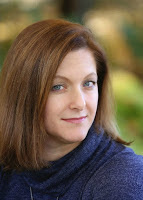 Lynn H. Blackburn loves writing romantic suspense because her childhood fantasy was to become a spy, but her grown-up reality is that she's a huge chicken and would have been caught on her first mission. She prefers to live vicariously through her characters and loves putting them into all kinds of terrifying situations while she's sitting at home safe and sound in her pajamas!
Lynn H. Blackburn loves writing romantic suspense because her childhood fantasy was to become a spy, but her grown-up reality is that she's a huge chicken and would have been caught on her first mission. She prefers to live vicariously through her characters and loves putting them into all kinds of terrifying situations while she's sitting at home safe and sound in her pajamas! Unknown Threat, the first book in her Defend and Protect series, was a 2021 Christy Award finalist and her previous titles have won the Carol Award, the Selah Award, and the Faith, Hope, and Love Reader’s Choice Award. Malicious Intent, the second book in the series, released March 2022.
She is a frequent conference speaker and has taught writers all over the country. Lynn lives in South Carolina with her true love and their three children. You can follow her real life happily ever after by signing up for her newsletter at LYNNHBLACKBURN.COMand @LynnHBlackburn on BOOKBUB, FACEBOOK, TWITTER, PINTEREST, and INSTAGRAM.
Published on July 06, 2022 22:00



